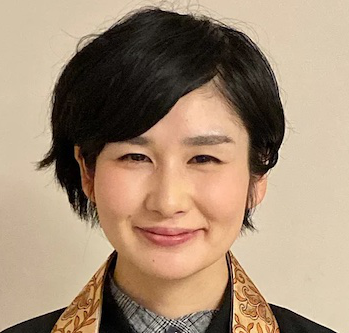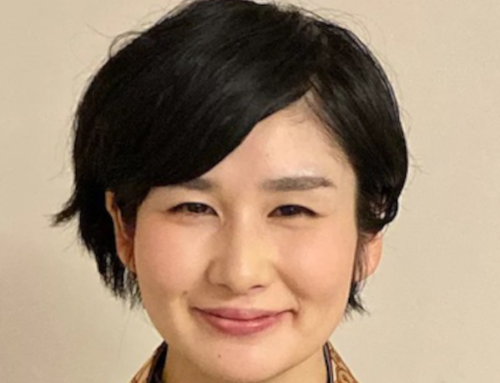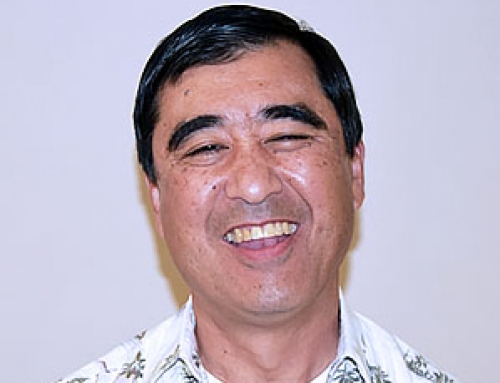There are allegedly over 84,000 kinds of sutras preached by Sakyamuni Buddha, the historical Buddha who lived over 2,500 years ago. The number of the sutras corresponds with how many people Sakyamuni Buddha had listened to with their conflicts and afflictions and talked to in his life journey. I have no idea whether Sakyamuni Buddha really preached to that many people, but I have learned that the number “84,000” represents the infinite number in Buddhism, which means each and every one is included.
After his death, his disciples gathered together to share what they heard from him and recollect his talks correctly in the form of sutras. So, that is why the sutras always begin with the phrase “thus I have heard” because the sutras are the collections of dialogues between the disciples with Sakyamuni Buddha.
Dialogue doesn’t work without a counterpart. It is a conversational ball between you and others. You could sometimes be a listener or a speaker or both. But being afraid of the awkwardness that the silence causes, sometimes we tend to talk too much and listen less. I have heard that we are afraid of something that we cannot take control of, which might be why we tend to hate the silence during the conversation and try to control the dialogue by talking a lot. Especially in my case, my English skill is not enough for others to feel comfortable to talk with, so I might probably make those people feel bored and make them feel awkward in silence. So, their concern toward me makes them a speaker and I tend to be a listener in most cases. I was struggling with it, however this made me realize the importance of listening and the skill of creating questions to encourage them to speak their own words and hearts.
As a minister, I sometimes have opportunities to have a conversation with families who experienced the severe separation with their loved ones or people who had hardship and difficulties in their lives. I think it is outrageously difficult to try to understand their feelings in the same way that they do, figure out what are their core concerns and find what the key is for them to get through the difficulty. Nevertheless, I tend to rush into answering their questions and may miss what the person really wants me to hear and answer. Therefore, even more so, I personally wish I could stop rushing, listen to the other person carefully and share questions to encourage the person to speak about what is at the bottom of their hearts.
The number of 84,000 in the sutra is the proof of how many dialogues Sakyamuni Buddha had with his disciples.The attention should be paid to the fact that Sakyamuni Buddha preached his teachings taking into account people’s patience. All of his talks were given in the best suitable expression of the teaching for the person in front of him. Sakyamuni Buddha is said to be a genius in dialogue with anyone.
I found an interesting description about the dialogue in a book which I recently read. In the book, the author compared the words or questions that facilitate others to open their hearts in the dialogue as “the priming water”.
Probably the use of the term “the priming water” might not be very common recently.
There was an old well in the garden of a shrine where I used to play with my friends when I was still little in Japan. It was the type of well that pumps up the groundwater by moving the lever up and down and which was designed so that when we first start using it, we first pour “the priming water” into the pump to fill it up, and the groundwater connects to the water in the well which will bring it up to ground level. My hands still vividly remember the feeling of the cold and fresh ground water from the well in the middle of the summer.
I feel like there are some overlaps between the dialogue and the well that has these characteristics. Imagine, if two people who are about to engage in the dialogue are facing each other across “a well of words.” Probably the well might be completely dried out and the scene is static. Then either of the two people start throwing words into the well as the priming water. Before the priming water runs dry, the two take turns to keep pumping a little at a time, and eventually water gushes up from the bottom of the well. Once that happens, the rest of the words will just flow out naturally, without any effort on the pump.
It is the same with wells, there is some level of proficiency in how to throw in the priming water and how to pump the first time. But no matter how skilled one is at using a well, one cannot control the groundwater. The well may be dead, or the water may be muddy due to the weather or the environment. If there is such a thing as a professional in dialogue, it is not someone who can draw an abundance of clean water from any well, but rather someone who can recognize and accept any well as it is.




